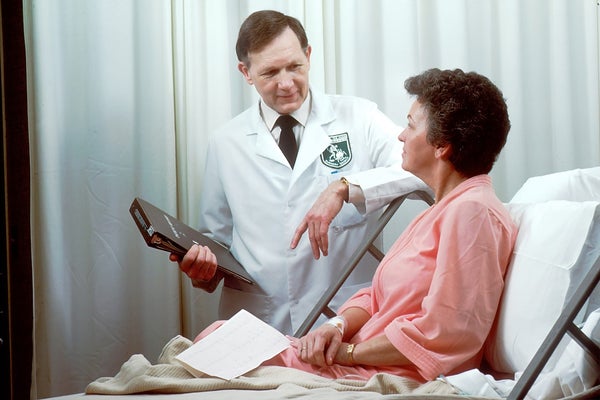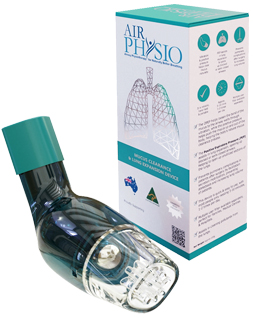What to Expect When Seeing a Pulmonologist & How to Prepare
Don’t wait till you’re sick before you visit a doctor. One of the most important things you’ll ever do for your health is building a relationship with your primary care physician. Making regular appointments allows them to catch minor medical issues before they escalate and become problematic.
Besides, they are the point-person to help coordinate your care if you ever need specialized medical attention. One such instance would be to refer you to a pulmonologist if you’re experiencing respiratory symptoms beyond the usual ones seen in a common cold or flu.
These specialists understand everything about how the lungs work and are in a better position to address the existing respiratory ailments you might be facing. Here’s what to expect when seeing a pulmonologist and how to prepare for your next visit.
What Does A Pulmonologist Do?
A pulmonologist is a doctor who specializes in the respiratory system and understands the intricate inner workings of the lungs. They are experts in the way the blood vessels, muscles, and individual airways work together to allow you to breathe easily. All pulmonologists become board-certified once they pass a test administered by the American Board of Internal Medicine.
Pulmonologists are specialists in everything related to the proper functioning of the lungs. They can, however, specialize further and focus on the treatment and management of certain diseases. They could even choose to work with specific groups of the population.
For instance, you may come across those who cater to children or older adults. You may also encounter others who specifically look after critically ill patients in hospitals, some of whom rely on a ventilator to breathe. Others still focus on specific respiratory illnesses such as asthma or Chronic Obstructive Pulmonary Disease (COPD).
Why Would You Need To See A Pulmonologist?
Your primary care physician is perfectly capable of treating common breathing issues. However, they might refer you to a pulmonologist when your breathing problems become more complicated, and they’re not entirely sure where they’re stemming from.
Your doctor will likely refer you to a lung specialist if you’re experiencing any of the following symptoms:
- A Cough That’s Relatively Severe And Has Persisted For More Than Three Weeks Even After Medication
- Breathing Difficulty Accompanied With Lightheadedness, Dizziness, Fainting, Or Fatigue
- Issues Getting Your Asthma Under Control And Failure To Identify The Possible Triggers For Your Flare-Ups
- Suffering From Repeated Colds Or Recurrent Bronchitis That Affects Your Breathing
- Tightness In The Chest (With Or Without Chest Pains)
- Unusual Breathing Difficulty, Especially During Physical Activities
- Wheezing While You Breathe
- Wheezing While You Breathe
A pulmonologist would be best-placed to diagnose whatever respiratory condition might be ailing you and put you on a treatment plan that will improve the quality of your life.
How To Prepare For Your First Appointment

Once your primary care physician refers you to a pulmonologist, there are a few things you need to do to prepare for your doctor’s visit. That way, you can provide them with all the information they need to make an accurate diagnosis and start your treatment plan as soon as possible.
Log Your Symptoms
First, write down all the symptoms you have ever experienced and are currently experiencing. Regardless of how trivial or unrelated to your lungs they may seem, write them down. You would be surprised by how respiratory conditions can affect other seemingly unrelated systems and organs in your body.
It is not uncommon for lung problems to spill over into the cardiovascular system and even affect major organs like the heart. Write down everything you know about when you first noticed something was off, and let the pulmonologist determine what to do with that information. After all, they are the experts.
Identify Any Triggers
Once you’ve logged all your symptoms, the next step involves taking note of anything that appears to make your condition worse or better. For instance, say one of your symptoms is difficulty breathing while jogging.
Some of the things you might want to take note of are the potential triggers like: Was it particularly cold on that day? Are the symptoms less when you run in warmer weather? Do you work in an environment with lung irritants like industrial fumes? Do you live with someone who smokes in your presence? Do your symptoms improve when you’re not exposed?
Identifying potential factors that make your symptoms worse plays a critical role in diagnosis, treatment, and prevention.
Research Your Family Medical History
The next thing you need to do is find out if anyone in your family has a history of respiratory ailments. If you’re not familiar with anyone who’s ever been diagnosed with chronic lung disease, ask immediate family members if they know anyone in your bloodline that might have experienced similar symptoms.
It is also a good idea to talk to your co-workers and non-relatives who live in your household to find out if any of them have experienced symptoms like yours to rule out environmental causes. Write down this information and take it with you to your next appointment.
List All The Medications You’re Taking

This is something you need to do every time you have an appointment with a medical professional, whether or not it’s a pulmonologist. Write down all the over-the-counter and prescription medications you’re currently taking. You also need to list any vitamins or mineral supplements you’re on, even if you believe they’re “healthy.” This is important for two reasons:
First, some supplements have been linked to certain diseases, including lung, stomach, and prostate cancer. Second, it may help prevent any adverse interactions with the new medication your doctor prescribes.
Take A Close Friend Or Family Member Along For The Visit
The possibility of being diagnosed with a chronic lung disease like COPD or lung cancer can be overwhelming and downright scary. Consider asking a close friend or family member to tag along with you to the appointment.
It might help put you more at ease during the visit. Plus, it’s always helpful to have someone else with you to listen to the details of your diagnosis and the treatment plan in case you miss something.
What To Expect When Seeing A Pulmonologist
When you go for your appointment, the doctor will ask you several questions about your symptoms before they do a physical exam on you. This may involve listening to your chest using a stethoscope as you breathe in and out.
They may also order some tests, including blood work, a CT scan, or an X-ray. Depending on the severity of your symptoms, they might also recommend a bronchoscopy, where they insert a tube with a light and a small camera down your throat and through your windpipe. This allows them to take a close look at your airways and other parts of your lungs.
A pulmonologist may also measure much oxygen you have in your body. To do this, they’ll place a small device known as a pulse oximeter on your finger to measure your blood oxygen. They may also require you to blow into a tube connected to a spirometer. This test measures how well air flows through your lungs.
Based on the findings of these tests, your doctor will then come up with a treatment plan. They may also work with a surgeon if a surgical procedure is required. More often than not, they will likely take a non-invasive approach to your treatment by prescribing medication.
Breathe And Live Your Life
There you have it – What to expect when seeing a pulmonologist. Just like your family doctor, a pulmonologist needs to work hand-in-hand with you to help manage your respiratory condition. Therefore, you need to play an active role in your treatment plan, which involves preparing thoroughly for each of your visits.
Remember, a chronic-lung-disease-diagnosis is not the end of the world. With the right care, treatment plan, and lifestyle adjustments, you can go on to live a full life and enjoy each day as it comes.
Can COPD be reversed? Check out our blog for everything you need to know about the condition.
Average Lung AirPhysio
ENJOY BETTER BREATHING - Use this 100% Drug Free Device - AIRPHYSIO

Recent Posts
Sports AirPhysio
IMPROVE YOUR SPORTING PERFORMANCE - Use this 100% Drug Free Device - AIRPHYSIO

AirPhysio Child
BETTER BREATHING FOR YOUR CHILD - Use this 100% Drug Free Device - AIRPHYSIO

Categories
- asthma (2)
- atelectasis (2)
- bronchiectasis (2)
- copd (3)
- cystic-fibrosis (45)
- featured (10)
- uncategorized (2)


